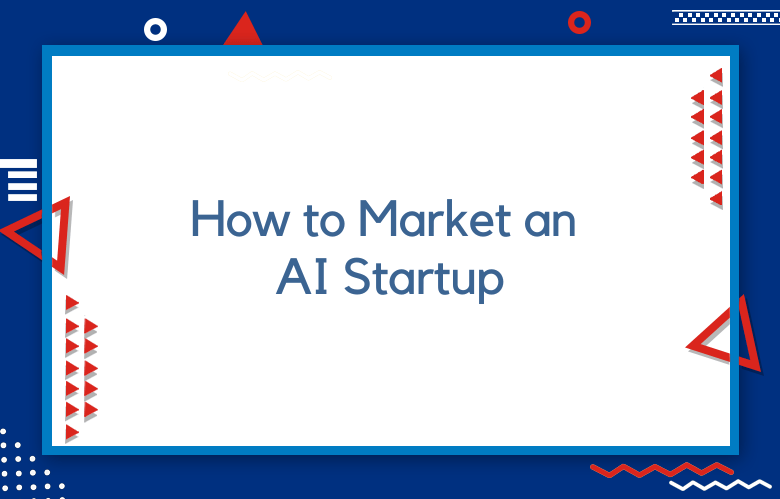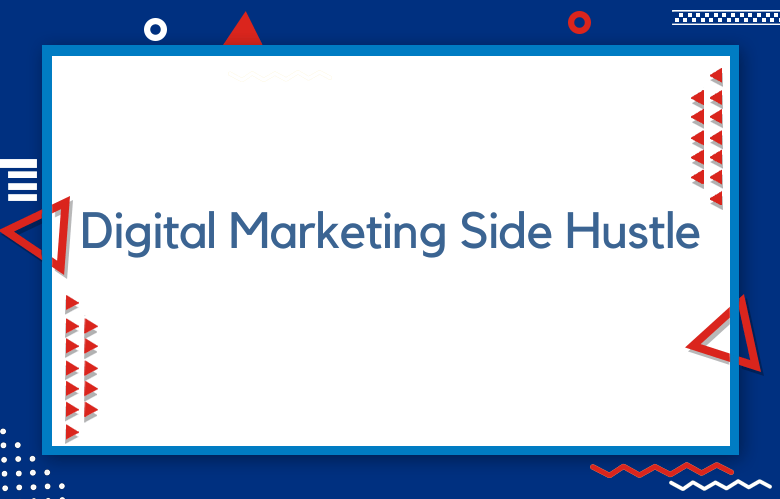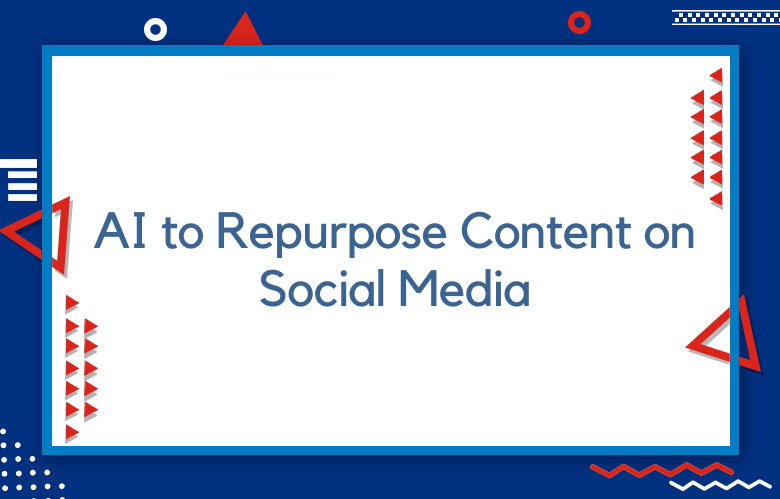How to Market an AI Startup: 100 Tips for Success

Starting an AI startup is exciting, but it also brings challenges. One significant challenge is building a customer base for your AI product.
Marketing plays a vital role in the success of an AI startup, but considering the vast sea of competitors and technological advancements, it takes a lot of work. To help you generate more leads and get the word out about your AI startup, we have compiled 100 tips for your startup’s success.
Starting an AI startup is exciting, but it also brings challenges. One significant challenge is building a customer base for your AI product.
Marketing plays a vital role in the success of an AI startup, but considering the vast sea of competitors and technological advancements, it takes a lot of work. To help you generate more leads and get the word out about your AI startup, we have compiled 100 tips for your startup’s success.
Effective Strategies for Marketing Your AI Startup
Marketing an AI startup can be challenging, as it requires a deep understanding of the technology and its potential benefits to the target audience. However, with the right strategies, an AI startup can reach its target market effectively and differentiate itself from the competition. The following are some effective strategies for marketing your AI startup:
Define Your Target Audience
The first step in marketing your AI startup is understanding the industry, its challenges, and the potential solutions your technology can offer.
This requires a deep understanding of your target audience and their needs. Once you understand your audience, you can tailor your messaging and marketing efforts accordingly.
Leverage Social Media
Social media platforms like Twitter, LinkedIn, Facebook, and Instagram can be powerful tools for reaching your target audience.
Use social media channels to share thought leadership content, industry news, and company updates. Be sure to engage with your audience by responding to their comments and questions.
Develop Thought Leadership Content
Developing thought leadership content, such as white papers and case studies, can help position your AI startup as an industry leader. This content should educate your target audience on the benefits of your technology and demonstrate your expertise in the field.
Build Relationships with Industry Influencers
Building relationships with industry influencers can help increase your brand’s visibility and credibility.
Identify thought leaders in your industry and engage with them by commenting on their articles and sharing their content on your social media channels. Eventually, these influencers may become advocates for your brand and help spread the word about your AI startup.
Attend Industry Events
Conferences and trade shows can help you network with potential customers and partners. These events also allow you to learn about industry trends and stay up-to-date on competitors.
Use Paid Advertising
Paid advertising, such as Google AdWords and LinkedIn Ads, can help you reach your target audience quickly and effectively. Be sure to target your ads to potential customers interested in your AI technology.
In conclusion, marketing an AI startup requires a deep understanding of the industry and its potential solutions. You can effectively reach your target audience and differentiate your brand from competitors by developing thought leadership content, building relationships with industry influencers, and leveraging social media and paid advertising.
Critical Tactics for Successfully Promoting Your AI Company
Promoting an AI company in today’s digital era requires a strategic approach and much effort. You must understand how to build brand awareness, engage potential customers, and convert leads into sales. Here are some key tactics that can help you achieve success in promoting your AI company:
Leverage social media
Social media platforms are powerful for building brand awareness and engaging a broad audience. Creating compelling content, sharing industry news, and interacting with your followers can establish your brand as a thought leader in the AI space.
Build a robust website
A well-designed website is crucial for converting visitors into leads and customers. Ensure your website is user-friendly, optimized for search engines, and showcases your products and services.
Implement SEO strategies
Search engine optimization (SEO) is critical for driving traffic to your website and building your brand’s online presence. To improve your search engine rankings, identify relevant keywords, optimize your website’s content, and create high-quality backlinks.
Develop thought leadership content
Thought leadership content can help establish your brand as an authority in the AI space. Create whitepapers and case studies that showcase your expertise and provide valuable insights to your audience.
Host events and webinars
Hosting events and webinars can help you connect with potential customers and showcase your products and services. Consider hosting virtual events to expand your reach and engage with a broader audience.
By implementing these tactics, you can successfully promote your AI company and build a strong brand in the competitive tech landscape. However, it’s essential to continually monitor your results and adjust your strategy based on your performance to maximize your impact on your target audience.
Mastering the Art of Marketing an AI Startup
Mastering the Art of Marketing an AI Startup requires comprehensive knowledge and skill in understanding the core features of AI and the unique capabilities and potentials of startup businesses.
Therefore, it is essential to establish a robust and innovative marketing strategy that will effectively reach and convince potential clients and investors about the value of the AI startup.
In today’s age of technological advancements, AI is among the most popular and trending domains of innovation.
AI has the power to revolutionize various industries through its innovative solutions, such as intelligent chatbots, data analysis, predictive modeling, and natural language processing.
However, AI startups’ new and cutting-edge nature, coupled with the highly competitive market, requires a unique approach and a deft touch in marketing.
Proven Methods to Drive Growth for Your AI Business
As the world becomes increasingly digitized, businesses recognize the power and potential of artificial intelligence (AI). However, as more companies compete to deliver innovative AI solutions, standing out and driving growth can take time.
There are proven methods for gaining traction and competitive advantage if you’re looking to accelerate your AI business.
Firstly, it’s essential to clearly understand your target customers and what they need. This involves conducting extensive market research and listening to your customers’ feedback to identify pain points and opportunities for improvement.
With this customer knowledge, you can tailor your AI solutions to meet their specific needs, creating customized solutions that deliver real value and can drive growth.
Unlocking the Potential of AI Marketing for Startup Success
In today’s digital world, startups constantly seek innovative and efficient ways to reach and engage with their target audience. Artificial intelligence (AI) marketing has emerged as a powerful tool to help startups unlock the potential for success in their marketing efforts.
AI marketing leverages machine learning algorithms to analyze data, identify patterns and trends, and make accurate predictions, which can significantly improve a startup’s marketing campaigns.
AI-powered marketing tools can help startups analyze massive amounts of data quickly and accurately.
This data can be used for customer segmentation, targeted advertising, personalized messaging, and more. By understanding their customers’ behavior, preferences, interests, and needs, startups can effectively create a strategy to engage and retain customers.
This information can also reveal insights beyond traditional marketing research, such as changes in trends, shifting consumer behaviors, and new behavior patterns. All of these insights can help a startup stay ahead of the competition.
Positioning Your AI Startup for Success in a Competitive Landscape
As the field of artificial intelligence continues to expand and evolve at an impressive rate, startups in this space face an increasingly competitive landscape.
To ensure your AI startup is positioned for success, it is essential to have a clear and well-executed strategy considering the latest trends and developments in AI technology and the competitive landscape.
One of the first steps in positioning your AI startup for success is identifying your unique value proposition and understanding how it addresses the market’s needs and challenges.
This requires a deep understanding of your target customers, their pain points, and how your AI technology addresses those pain points in a novel and effective manner.
Creating Compelling Visuals to Showcase Your AI Product
Your visuals can make or break your success when showcasing your AI product. To create compelling visuals that effectively communicate the value and functionality of your product, it’s essential to keep a few key considerations in mind.
Firstly, you must start by clearly identifying and understanding your target audience. What are their pain points, what are they looking for in an AI solution, and what kind of visual content will draw their attention and keep them engaged?
Once you have a clear picture of your audience, you can craft visual content that speaks directly to their needs and desires.
Highlighting the Business Value of Your AI Solution
Highlighting the business value of your AI solution is a crucial step in getting buy-in from stakeholders and securing funding for your project.
To effectively communicate the value of your solution, it is essential to provide detailed information and supporting facts that demonstrate its potential impact on the business.
One key piece of information to include is the potential cost savings or revenue generation that your AI solution can deliver.
This could include reducing operational costs by automating tasks, improving customer satisfaction through personalized recommendations, or increasing sales through targeted marketing efforts.
Demonstrating Real-World Impact Through Customer Case Studies
Customer case studies are an effective way to showcase the real-world impact of your products or services.
By sharing specific examples of how your offerings have solved specific problems or met particular customer needs, you can help potential customers understand the value of your offer more tangibly.
A well-executed customer case study provides context, details, and facts that help tell a more complete and convincing story.
For instance, rather than simply stating that your product has helped increase sales for a customer, you could provide specific data points to back up that claim, such as a percentage increase in revenue or sales leads generated.
Engaging Audiences with an Interactive Demo of Your AI Technology
Artificial Intelligence (AI) technology is revolutionizing how we live and work. With its ability to analyze large amounts of data and make complex decisions, AI is quickly becoming an essential tool for businesses across industries.
However, many people are still unfamiliar with the potential of AI and may need to understand how it can benefit them fully. This is where an interactive demo can make all the difference.
An interactive demo of your AI technology allows audiences to engage with it firsthand and see its capabilities in action.
This demonstration helps overcome people’s fear and skepticism about AI by providing them with a tangible experience. An interactive demo lets individuals see how AI can benefit their business or industry.
100 Tips to Market an AI Startup
Artificial Intelligence, or AI, is the future of technology, and startups worldwide are trying to delve deeper into its benefits.
However, as with any business, marketing the product or service is crucial to success. We’ve collated a list of 100 tips that will help AI startups sell their product more efficiently and effectively.
- Define your product or service and be clear about your value proposition.
- Knowing what you stand for will help you better market your brand.
- Create a marketing budget that is flexible and scalable.
- Start with a strong brand identity that reflects your product and speaks to your target audience.
- Develop a buyer persona that meets your ideal customer’s needs and motivations.
- Map out your buyer journey and understand the different touchpoints leading customers to your product.
- Leverage social media platforms to reach your potential customers.
- Use content marketing to showcase your expertise and provide value to your target audience.
- Build a user-friendly website that showcases your product, expertise, and values.
- Use SEO to ensure that your website is easily discoverable by search engines.
- Leverage influencer marketing to increase the visibility of your brand.
- Utilize video marketing to capture and keep your audience’s attention.
- Create a brand voice that speaks to consumers and differentiates your product from competitors.
- Attend conferences and networking events to connect with potential business partners and customers.
- Develop a referral program to encourage word-of-mouth marketing.
- Use pay-per-click (PPC) advertising to target keywords related to your product.
- Take advantage of analytics tools to track website traffic and customer behavior.
- Create engaging email marketing campaigns to drive conversions.
- Use retargeting to advertise to customers who have already shown interest in your brand.
- Leverage chatbots to handle customer inquiries and improve customer experience.
- Offer free trials or demos to entice potential customers.
- Create and distribute engaging infographics to represent complex data visually.
- Develop partnerships with complementary brands to expand your reach.
- Hold webinars to showcase your product and expertise.
- Use mobile apps to target customers on the go.
- Host giveaway contests to generate buzz around your brand.
- Use customer reviews and testimonials to showcase your product’s value.
- Utilize SMS marketing to target customers directly.
- Host a podcast to discuss topics related to AI and your product.
- Leverage community marketing to create brand ambassadors.
- Invest in public relations to increase brand awareness.
- Create a product explainer video to educate customers on your product.
- Use AI to personalize your marketing campaigns to each customer’s preferences.
- Develop a social influencer program to tap into trusted voices.
- Use affiliate marketing to generate leads and sales through your partners.
- Host educational workshops to showcase the benefits of your product.
- Develop partnerships with industry-thought leaders to expand your reach.
- Host a hackathon to engage with developers and increase brand awareness.
- Utilize augmented reality (AR) to showcase your product’s unique features.
- Develop a user-generated content campaign to engage with customers.
- Artificial intelligence can be used to analyze customer data and improve customer experience.
- Create white papers and e-books to showcase thought leadership.
- Use LinkedIn to target B2B customers.
- Publish guest articles on thought-leadership websites to showcase your expertise.
- Use micro-influencer marketing to tap into smaller yet more targeted audiences.
- Develop a content strategy that encompasses different formats and topics.
- Use virtual reality (VR) to showcase your product uniquely.
- Develop an app that leverages AI to help customers solve problems.
- Optimize your mobile site for UX and speed.
- Create chatbots that serve as personal shopping assistants.
- Use interactive content to engage with potential customers.
- Create an affiliate program to incentivize customers to refer friends.
- Attend industry events to showcase your product and network.
- Use influencer takeovers to generate buzz on social media platforms.
- Create a podcast series that features industry experts.
- Use text-to-speech technology to showcase product features uniquely.
- Host a Q&A session on social media platforms to connect with customers.
Optimize your website for mobile search. - Develop an AI-powered recommendation engine to suggest products to customers.
- Create a YouTube channel that showcases your product’s features and benefits.
- Use Facebook Live to host Q&A sessions and showcase product features.
- Create a blog that showcases industry trends and thought leadership.
- Develop partnerships with non-competitive companies to expand your reach.
- Use influencer marketing to tap into new demographics.
- Host a user-generated content contest to encourage brand engagement.
- Use artificial intelligence to create personalized product recommendations.
- Use podcast advertising to reach a captive audience.
- Create visually appealing social media graphics to showcase your product.
- Develop an email nurturing campaign that targets different stages of the buyer journey.
- Use gated content to generate leads.
- Develop a chatbot that provides business solutions.
- Create a LinkedIn group that showcases thought leadership.
- Use Instagram stories to showcase your product’s features and benefits.
- Develop an AI-powered chatbot that handles customer inquiries and support tickets.
- Optimize your website for SEO and keyword optimization.
- Use chatbots to provide personalized product recommendations.
- Use Snapchat to showcase a behind-the-scenes look at your brand.
- Create an AI-powered content curation engine to showcase industry news.
- Use sponsored content to target specific audiences.
- Create Twitter chats to interact with customers.
- Utilize Pinterest to showcase visually appealing product images.
- Leverage Google Analytics to track website performance.
- Use a chatbot to schedule consultations and demos with potential customers.
- Develop partnerships with micro-influencers and niche bloggers to target specific audiences.
- Use artificial intelligence to segment and target customers with personalized campaigns.
- Develop a live Instagram series that showcases industry expertise.
- Use push notifications to alert customers about sales and promotions.
- Create a content marketing strategy focusing on providing value to your target audience.
- Use targeted keywords in your blog and social media posts.
- Develop partnerships with industry associations to increase brand awareness.
- Use Instagram influencer marketing to target younger demographics.
- Use artificial intelligence to optimize ad spend and target specific audiences.
- Use chatbots to ask for feedback from customers and improve customer experience.
- Develop an AI-powered product recommendation engine for e-commerce platforms.
- Use Instagram shopping to showcase your product experientially.
- Host a Twitter chat to discuss industry trends and thought leadership.
- Retargeting can be used to show users ads based on their browsing history.
- Create a dynamic video series that showcases your product.
- Use AI to optimize your website for conversion rates.
- Develop a Google AdWords campaign that targets specific keywords.
- Use Facebook Messenger chatbots for customer service inquiries.
Conclusion
Launching a successful marketing campaign for your AI startup takes effort and creativity. The 100 tips above should get you on the right path to growing your business and reaching your sales goals. Constantly monitor your analytics, adapt to changes, stay up-to-date on trends, and continuously sample new tactics.
Choose the tactics that fit your AI solutions, industry practices, and customer’s needs. Building a credible and growing business is about what you do and how you communicate your values. Good luck!
Launching a successful marketing campaign for your AI startup takes effort and creativity. The 100 tips above should get you on the right path to growing your business and reaching your sales goals.
Constantly monitor your analytics, adapt to changes, stay up-to-date on trends, and continuously sample new tactics.
Choose the tactics that fit your AI solutions, industry practices, and customer’s needs. Building a credible and growing business is about what you do and how you communicate your values. Good luck!
Call: +91 9848321284
Email: [email protected]



